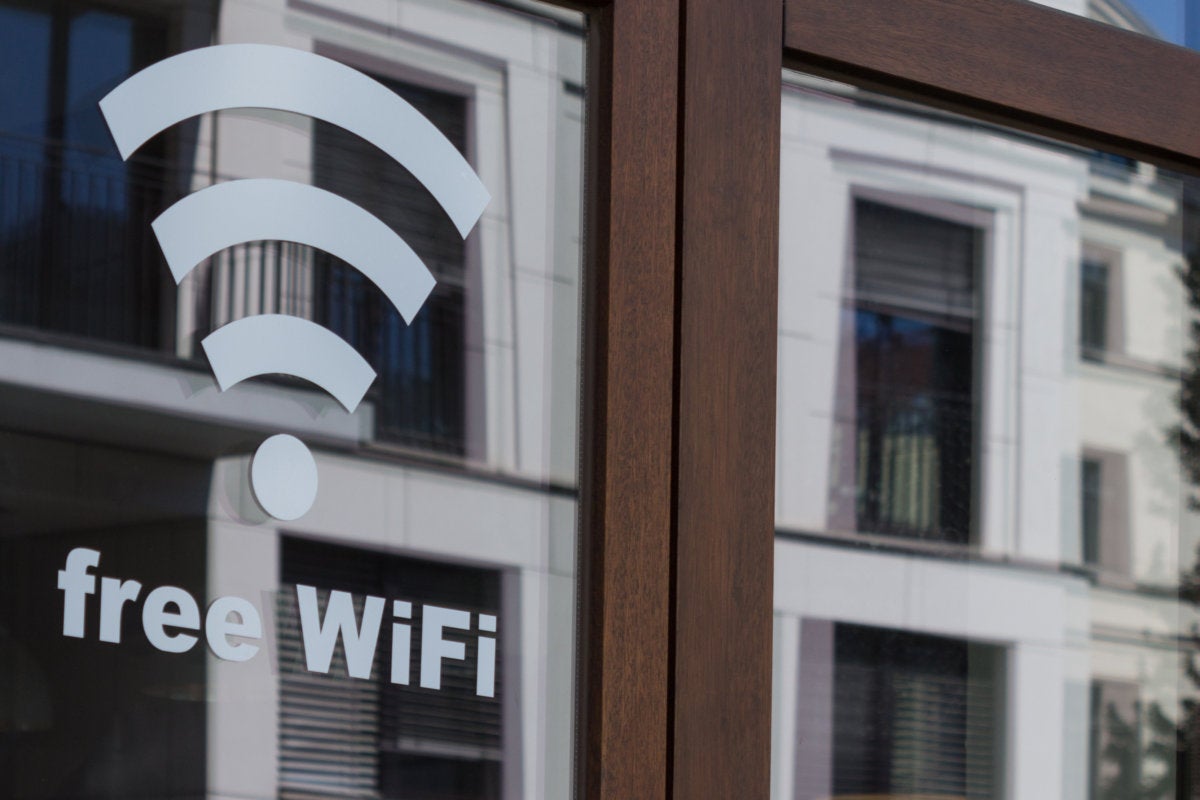Be Aware of "Free" Wi-Fi Hotspots and Tracking
Posted: November 05, 2018
[caption id="" align="alignright" width="412"]

Image: PCWorld[/caption]
One of the best things about technology is the ability to be able to connect to the internet from just about anywhere. Of course with that convenience also comes some danger. You might connect to free Wi-Fi hotspots at many places - from your local coffee shop to airports or hotels when you travel - without reading those pesky terms of service that pop up, but that could be a big mistake. Data collection isn't a new concept, but you might be surprised to find out that "free" Wi-Fi can go a step further and actually follow you and track your location long after the initial connection. The good news - there are some steps you can take to keep that from happening, and you should.
Dieter Holger, writer for PCWorld, shares what you should know about "free" hotspots.
Before you join the Wi-Fi hotspot at your local cafe, you might want to make sure it won’t follow your footsteps—literally—after you leave.
Ostensibly “free” Wi-Fi hotspots are in hundreds of thousands of businesses and public spaces across the United States. They’re in shopping malls. In airports. In chain restaurants. In local cafes. As a result, it’s easier than ever to get online. If your notebook or phone lacks a reliable data connection, you can still connect to a hotspot. But this convenience often comes at a price: your personal data and privacy.
When you use “free” Wi-Fi, there’s a good chance it’s managed by a third-party provider—which gets you online in exchange for your valuable sign-on data. The sign-on information that hotspots require will vary, but often includes your email address, phone number, social media profile, and other personal information. All can be used to target you with advertising and gain insights on your habits.
As Emory Roane, policy counsel at
Privacy Rights Clearinghouse, told PCWorld: “Read through the Wi-Fi Terms of Use for any of these businesses and you’ll almost certainly realize that there’s still no such thing as a free lunch.”
That’s probably not a surprise to most Wi-Fi hotspot users. But what might surprise you is that some hotspot providers are taking data collection a step further, and quietly tracking millions of users’ whereabouts even after they’ve left an establishment. These hotspots are part of America's burgeoning location-based Wi-Fi marketing industry.
PCWorld spoke to privacy experts and Wi-Fi location-analytics companies to learn more about how this technology works, and what you can do to avoid being tracked.
Wi-Fi location tracking and you
PCWorld
reviewed the privacy policies of a dozen Wi-Fi hotspot providers and found that they commonly ask users to agree to location tracking when they sign on. Some phrases that tip off this practice are “location data,” “location history,” “your location,” “device identifiers,” and “MAC address” (more on this later).
Read the entire article,
How 'free' Wi-Fi hotspots can track your location even when you aren't connected, on
PCWorld.
 Image: PCWorld[/caption]
One of the best things about technology is the ability to be able to connect to the internet from just about anywhere. Of course with that convenience also comes some danger. You might connect to free Wi-Fi hotspots at many places - from your local coffee shop to airports or hotels when you travel - without reading those pesky terms of service that pop up, but that could be a big mistake. Data collection isn't a new concept, but you might be surprised to find out that "free" Wi-Fi can go a step further and actually follow you and track your location long after the initial connection. The good news - there are some steps you can take to keep that from happening, and you should.
Dieter Holger, writer for PCWorld, shares what you should know about "free" hotspots.
Image: PCWorld[/caption]
One of the best things about technology is the ability to be able to connect to the internet from just about anywhere. Of course with that convenience also comes some danger. You might connect to free Wi-Fi hotspots at many places - from your local coffee shop to airports or hotels when you travel - without reading those pesky terms of service that pop up, but that could be a big mistake. Data collection isn't a new concept, but you might be surprised to find out that "free" Wi-Fi can go a step further and actually follow you and track your location long after the initial connection. The good news - there are some steps you can take to keep that from happening, and you should.
Dieter Holger, writer for PCWorld, shares what you should know about "free" hotspots.